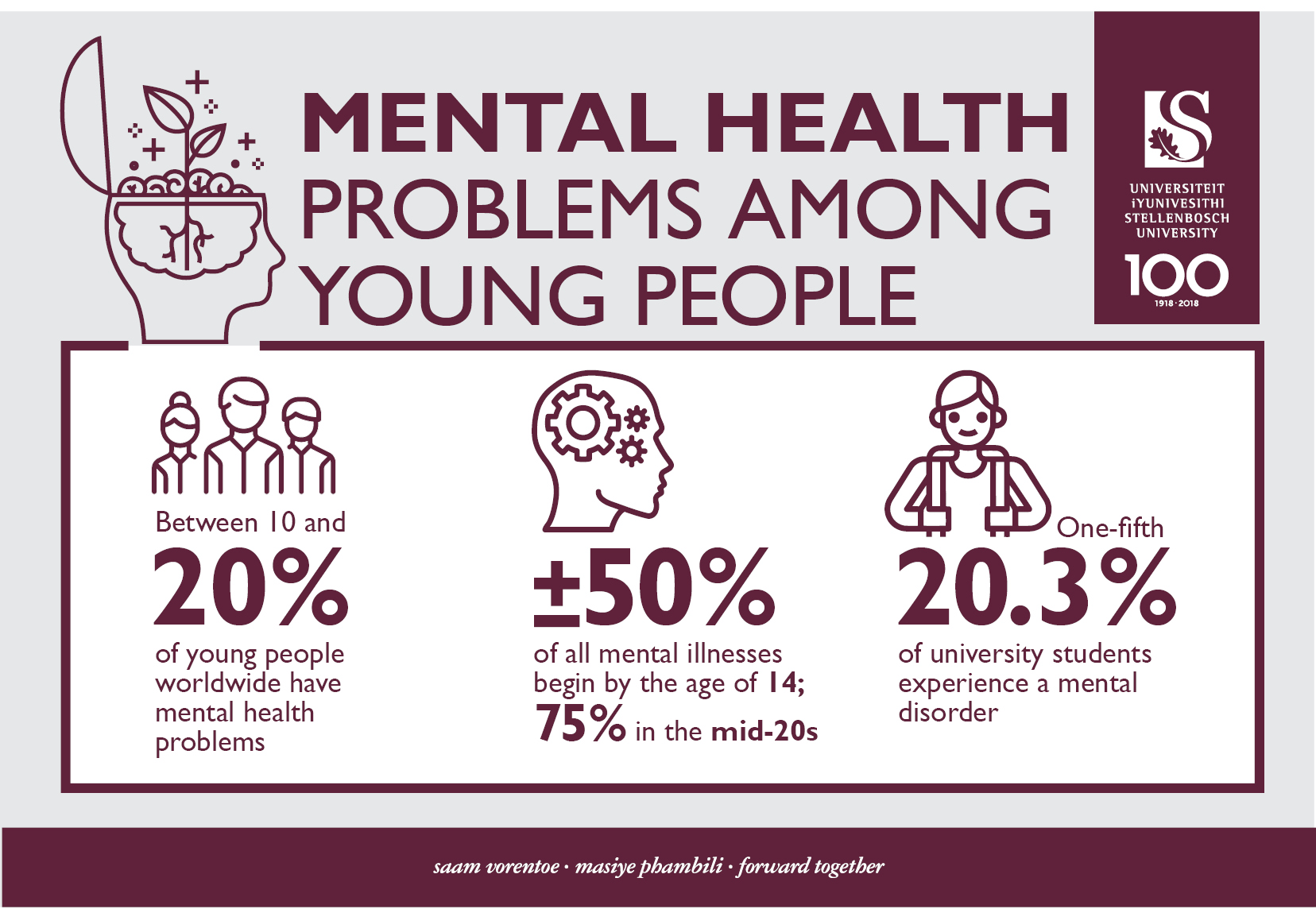Young people with mental health problems, especially those in low- and middle-income countries, are often being left in the lurch when they need help. They don't always get the necessary treatment despite the fact that mental illnesses among young people are on the increase globally.
“Mental health problems among young people are serious. If left untreated, they can adversely impact young people's social, personal and academic development. Young people with mental illnesses also face problems with social stigma, isolation and discrimination," says Dr Jason Bantjes a senior lecturer in the Department of Psychology at Stellenbosch University (SU). Bantjes does research on the suicide prevention and the promotion of mental health. His work is supported by a grant from the South African Medical Research Council.
Bantjes says it would be naive to think that young people do not develop serious mental health problems like anxiety disorders and depression. Young people are also prone to stress- and trauma-related disorders, and behavioural disorders, including problems with attention and impulse control.
“The fact that the theme for this year's World Mental Health Day (10 October) is 'Young people and mental health in a changing world,' shows that this is much more serious than we may think."
Bantjes also points to studies that highlight the gravity of the situation.
“The World Health Organisation reports that worldwide between 10 and 20% of children and adolescents have mental health problems. Approximately half of all mental illnesses begin by the age of 14 and three-quarters start by the time an individual is in his/her mid-20s, although these often go undiagnosed and untreated."
“A large international study found that one-fifth (20.3%) of university students experienced a mental disorder in the previous 12 months; 83.1% of these cases had pre-matriculation onsets."
“Ongoing research as part of the Caring Universities Project, undertaken by a consortium of researchers from UCT and SU, suggest that only about only about one fifth of first-year students with a mental health problem receive treatment."
“Closer to home, a study of school-aged children in Cape Town found that 22.2% of children met diagnostic criteria for post-traumatic stress disorder."
While genetic factors and temperament play a role in predisposing young people to mental illness, Bantjes says there's evidence that early childhood adversity makes individuals vulnerable to mental and physical health problems. He adds that the psychological wellbeing of children also suffers when their parents have untreated mental health problems.
Bantjes says it remains a concern that in many parts of the developing world, young people with mental illness struggle to access effective evidence-based mental health care and face the possibility of exclusion from educational institutions.
“Left untreated childhood mental disorders persist into adulthood and cause impairments in both physical and mental health. Longstanding mental health problems impede a person's ability to lead a fulfilling live, form mutually satisfying relationships, and be an active engaged member of their communities."
According to Bantjes, there are many reasons why so many young people with mental health problems do not receive the help they need.
“Common barriers to accessing care in low- and middle-income countries include ignorance about the signs and symptoms of childhood disorders, a lack of understanding about children's emotional and attachment needs, a lack of suitably qualified mental health professionals, and inadequate child and adolescent mental health services."
He says it is not always easy to recognise a young person with a mental illness.
“Sometimes we dismiss the signs and symptoms and think that the person is being demanding or is just going through a 'difficult phase'."
“When it comes to children who need psychological care, it is not uncommon for them to be labelled as naughty or uncooperative by those who don't understand the emotional needs of children and don't recognise that children sometimes use challenging behaviour to communicate psychological distress."
Bantjes calls for accessible, affordable and effective psychiatric and mental health care services for young people and their families, as early intervention and the provision of evidence-based treatments is one of the cornerstones of promoting mental health.
“Schools, universities and families have an important role to play in facilitating young people's social and psychological development and building their resilience. We need schools and universities which are safe, free of bullying, and where young people can find a sense of belonging and connectedness."
Bantjes says we must help young people learn interpersonal skills, so that they foster mutually satisfying relationships, since interpersonal connections act as buffers against the vicissitudes of life.
- Photo courtesy of Pixabay.
- Infographic by Nicolas Dorfling (Corporate Communication Division).
FOR MEDIA ENQUIRIES ONLY
Dr Jason Bantjes
Department of Psychology
Faculty of Arts and Social Sciences
Stellenbosch University
Tel: 021 808 2665
E-mail: jbantjes@sun.ac.za
ISSUED BY
Martin Viljoen
Manager: Media
Corporate Communication
Stellenbosch University
Tel: 021 808 4921
E-mail: viljoenm@sun.ac.za

